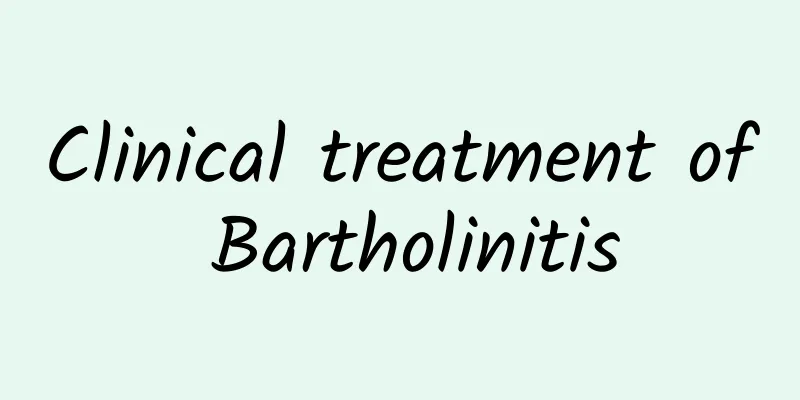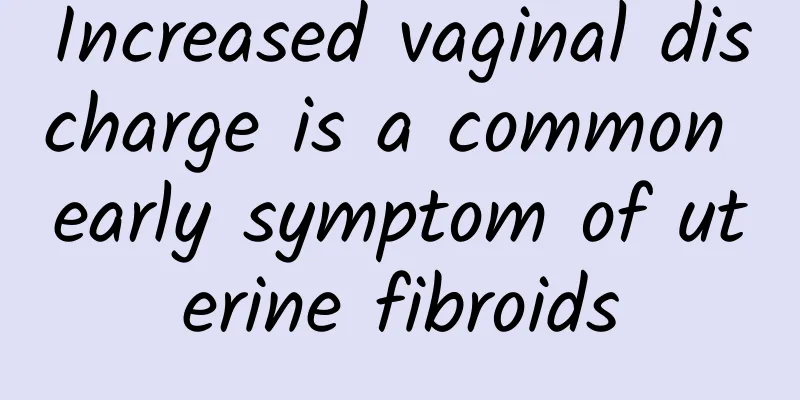What anti-inflammatory drugs should be taken after painless abortion? How many days should anti-inflammatory injections be taken for painless abortion?

|
Painless abortion is a safe and effective method to terminate early pregnancy. After painless abortion, you need to pay attention to recovery and anti-inflammatory. So what anti-inflammatory drugs should you take after painless abortion? Generally speaking, doctors will prescribe appropriate drugs according to individual circumstances. Common anti-inflammatory drugs include amoxicillin, cephalosporins, etc. At the same time, painless abortion also requires certain anti-inflammatory injections to promote wound healing and prevent infection. The following will introduce these two aspects in detail. 1. What anti-inflammatory drugs should be taken after painless abortion The choice of anti-inflammatory drugs after painless abortion is mainly based on the doctor's advice and personal situation. In general, common anti-inflammatory drugs include amoxicillin and cephalosporins. These drugs can achieve anti-inflammatory effects by inhibiting the growth of bacteria. Amoxicillin is a broad-spectrum antibiotic suitable for a variety of bacterial infections; cephalosporins are divided into cephalosporins and ceftriaxone, which are also commonly used drugs for anti-inflammatory treatment. 2. How many days of anti-inflammatory injections are needed after painless abortion After a painless abortion, in order to speed up wound healing and prevent infection, it is generally necessary to take anti-inflammatory injections for three consecutive days. Anti-inflammatory injections are a type of antibiotic that can be directly injected into the body and have a rapid and effective anti-inflammatory effect. Anti-inflammatory injections can not only prevent postoperative infection, but also reduce inflammatory reactions, relieve pain, and promote wound healing. 3. Diet and lifestyle considerations after painless abortion After painless abortion, in addition to the rational use of anti-inflammatory drugs and anti-inflammatory injections, you should also pay attention to your diet and lifestyle to promote your body's recovery and avoid infection. First, choose light and easily digestible food, eat more foods rich in vitamins and protein, such as chicken, fish, vegetables, etc., and avoid spicy and greasy food. Secondly, maintain good hygiene habits, wash your hands frequently, keep your vulva clean, and avoid using irritants such as detergents and lotions. In summary, after painless abortion, anti-inflammatory drugs need to be used reasonably to promote wound healing and prevent infection. Common anti-inflammatory drugs include amoxicillin and cephalosporins. The specific drug selection should be based on the doctor's advice and personal situation. In addition, in order to further speed up recovery and prevent infection, anti-inflammatory injections are required for three consecutive days. In terms of diet and life, attention should be paid to choosing light and easily digestible food and maintaining good hygiene habits to promote physical recovery and avoid infection. The comprehensive coordination of anti-inflammatory drugs and anti-inflammatory injections after painless abortion with precautions in diet and life will help to recover quickly and prevent the occurrence of postoperative infection. |
<<: What is considered malignant uterine fibroids? Does malignant uterine fibroids mean cancer?
>>: Why do women develop uterine fibroids? What can I eat to eliminate uterine fibroids the fastest?
Recommend
Why do I still bleed after a miscarriage? Is this normal?
Some women will have continuous vaginal bleeding ...
One person eats for two? Dispelling misconceptions
After learning that she is pregnant, the expectan...
What should I do if my menstrual period is long and heavy?
What should I do if my menstrual period is long a...
What are the effects of uterine fibroids on women during pregnancy?
Uterine fibroids are a relatively common gynecolo...
How to use abortion pills and what are the precautions after medical abortion?
The abortion drugs currently used mainly include ...
What are the dietary taboos for those suffering from candidal vaginitis?
Now we must pay attention to our daily diet in ou...
What are the misunderstandings about dysmenorrhea
I believe everyone has heard of dysmenorrhea, and...
Explore what are the symptoms of ovarian cysts
Ovarian cysts can also be considered ovarian tumo...
What medicine is effective for cervical inflammation of the second degree?
What medicine is effective for cervical inflammat...
What are the dietary taboos for cervical erosion?
The number of patients with cervical erosion is i...
What causes candidal vaginitis?
Vaginal candidiasis is a common vaginal inflammat...
Is premature ovarian failure hereditary?
Can premature ovarian failure be inherited? In re...
Is it dangerous to get pregnant after 4 months of hydatidiform mole?
Pregnancy after four months is still risky, espec...
How to beautify your breasts at home! Learn 2 tricks to fight gravity and prevent your breasts from slumping or sagging
Are you suffering from the annoying problem of br...
What are the main symptoms of chronic pelvic inflammatory disease?
What are the main symptoms of chronic pelvic infl...









